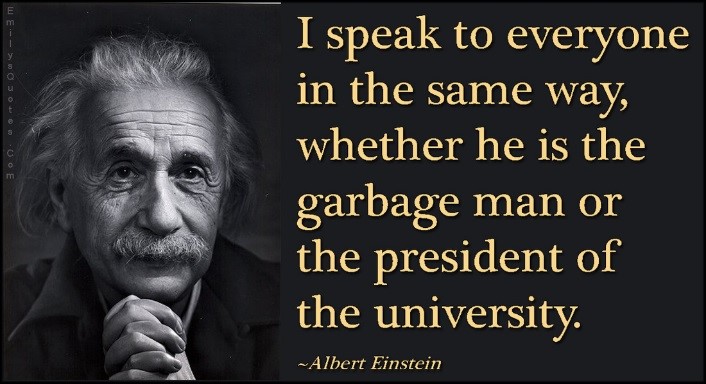
In our workshops on Guest Centricity, our earlier poser was ‘What changes have happened over the past two decades.’
Damn, now it is ‘What changes have happened over the past two years!’
Over the past 2-3 decades, Guest Service Levels have striven to move from ‘Satisfied’ to ‘Very Happy or Pleased’ to ‘Delighted Guests.’ Now, over the recent past, Guest Delight has also taken on additional and neoteric dimensions. Earlier, it was mostly about delighting the ‘Guest ego and needs.’ Now it has forged ahead to a more philanthropic perspective.
Today, the guest is ‘Delighted’ to stay at properties that also tick the box on corporate social responsibility needs. The presence of fulfillment standards of Environmental, Social, and Governance (ESG) is in effect an altruistic self-actualisation for the guest and the new normal for enhancement of guest centricity.
To cite an example, earlier, guests would be delighted to be served by the same person over breakfast and dinner. Not anymore. Now guests take umbrage when the employee is being overworked and has no proper work-life balance.
The conundrum for us hoteliers is how to satiate and delight the guest, whilst not over-working employees.
We have called this upon ourselves by exploiting our employees over the decades… and now, post-pandemic, we have no choice but to work with fewer resources. Recently, we are seeing hoteliers and owners apologizing for the historical evils of exploitation. Now, we need to put into action, innovative employee best practices, to eradicate these evils of the past. Unfortunately, there is no magic potion for this, and this will best happen by a positive intent to change, rather than being wedged in a shell of the past.
What works against this relatively new realization that we need to adapt to ESG needs is that currently, the hospitality business is anyways hitting the roof. Hoteliers are exulting in business trends ziplining north, that too, from the domestic travel market. With the international traveller soon to touch Indian shores for our tropical winter season, business trends will positively implode further. Where then, is the bandwidth for introducing corporate social responsibility?
Yet, we need to note that delighting guests also encompasses delighted employees, for how can Guest Centricity exist without empowered, motivated, and delighted employees?
The ‘S’ in ESG is explained as the social aspect. This focuses on people and relationships and includes working to support equity, gender, inclusion, and diversity, in addition to enhancing guest delight and employee engagement.
Though Guest Centricity has of late, taken on the additional dimension of Corporate Social Responsibility through Environmental, Social, Governance (CSR-ESG), the basics of Guest Delight must still not be forgotten.
While enhancing Guest Delight is an art – a natural, and therefore intrinsic art for a few talented guest-centric associates, there is also a behavioural science backing this art.
Here is my must-have formula for Guest Centricity, which I exhort you to supplement and enhance.
SINCERE PERSONAL INTEREST IN GUEST WELL-BEING: Unless we really care for our guest’s well-being, we will deliver services clinically. Clinical service becomes procedural, and while it may satisfy the guest, it will not delight them. It is the convivial service that delights, and when delivered sincerely, with a personal interest for the guest, it is a clear winner. If the chicken and egg story confuses us, the Guest Delight saga need not do so… for guest delight clearly must come first, for supreme guest loyalty and word of mouth, higher sales and profitability, higher ratings, and motivated associates to follow, thereafter.
MOTIVATED ASSOCIATES: This has already been expounded as part of the ‘S’ of ESG.
EMPATHY: One of the most misunderstood concepts. It is easy to say ‘Empathy is all about putting yourself in another’s shoes.’ The challenge normally overlooked here is that before doing so, one has to remove one’s own shoes first! Only when one keeps aside one’s opinion, advise, and life-viewing prism can one truly get into the skin of the other person and understand their angst. There is this story about the hotel staff at a B&B in Canada who displayed solidarity with their guest, by shaving off their hair completely, when they got to know that a single father was bringing his son on R&R post his chemo. That is Empathy!
EMOTIONAL INTELLIGENCE: This encompasses the ability to perceive, reason with, understand, and manage emotions within yourself and others. While EI embraces all points mentioned in this list and is complex in its understanding; being emotionally intelligent to take responsibility for one’s mistakes and handle criticism maturely is directly connected to Guest Delight. Oft times ‘Guest Angst’ can be converted to Guest Delight. However, the logjam comes from justifying, instead of taking responsibility for the guest’s issues and handling feedback positively.
ACTIVE LISTENING: The most important subset of listening, Active Listening, entails Understanding before Responding. This cannot be compromised. Sadly, it is, at most times. Understanding includes the intent to understand (displayed by one’s body language) and the ability to understand. (Characterized by paraphrasing, questioning, and summarizing one’s understanding.) Only after doing all of this, should one Respond (agree, no judgement, or disagree)
Some of the most delightful guest interactions happen when the associate takes the effort to understand the guest before responding.
EMOTIONAL CONNECT WITH GUESTS:
Robin D’Souza, an Indian settled in Scotland, was a regular at The Leela Goa during my stint there. Amongst several regulars, I often interacted with him and his Scottish wife. I learnt that two decades prior, he was from my school and suburb in Bandra, Bombay (St. Stanislaus High School). We both were avid readers and fans of P.G Wodehouse, and this too drew us close, in spite of the several years and seas separating us! During one of our many conversations, Robin had reminisced of flying kites as a youngster; so, on his next trip, we organized the paraphernalia required for this sport (colloquially known as ‘phirkee with manja,’ along with a dozen colourful paper kites). On check-in, he was delighted and emotionally overwhelmed when he saw that besides the regular amenities, there were these multicoloured kites along with their trappings. His wife told me later that Robin actually cried when he saw these ‘thoughtful amenities,’ as they had evoked fond memories for him.
Guest Delight is ignited best by evoking a positive emotional reaction from a guest!
And, on a lighter note…
Chef Joe from Denver city Was all for Guest Centricity His version of Prairie Oysters Deep-fried Bull gonads as starters Delighted all guests blushfully







